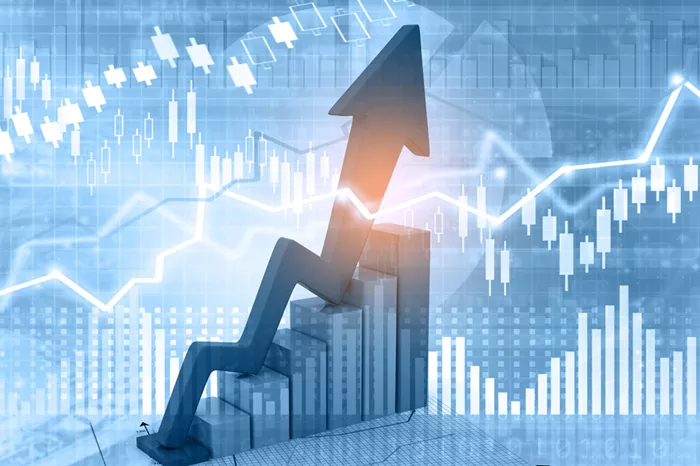In the aftermath of Donald Trump’s recent electoral victory, global investors have significantly adjusted their outlook on the economy, anticipating both higher growth and inflation. According to Bank of America’s latest monthly fund manager survey, these expectations reflect a marked shift in sentiment among market participants, leading to increased allocations towards U.S. equities, particularly small-cap stocks that are more aligned with domestic economic performance.
Bank of America conducted a survey involving 179 fund managers who collectively manage assets worth $503 billion. Notably, 22% of respondents shared their views following Trump’s election win. The survey revealed that a net 23% of these investors expect the global economy to strengthen over the next year, marking the most optimistic outlook since August 2021. This is a significant turnaround from October’s survey, which indicated that a majority anticipated a weaker economic landscape in the coming months.
Accompanying this positive shift in growth expectations is a notable change in inflation outlooks. A net 10% of respondents post-election foresee higher inflation over the next year, the highest level of inflationary expectation recorded since July 2021. This contrasts sharply with October’s figures, where a net 44% believed that consumer price index (CPI) levels would decrease over the next year—a sentiment that has now diminished to only 16% in November.
Investors are responding to these shifts by increasing their allocations to U.S. stocks. Currently, a net 29% of respondents report being overweight in U.S. equities, the highest proportion since August 2013. This trend underscores a growing confidence in the U.S. market’s potential to thrive under Trump’s economic policies.
Trump’s electoral win has reignited discussions about potential changes to U.S. economic policy that could have far-reaching implications both domestically and internationally. His administration is expected to pursue aggressive fiscal measures, including tax cuts and increased tariffs on imports, particularly from China. Such policies are anticipated to drive inflation higher while simultaneously stimulating sectors of the U.S. economy that are more insulated from global trade dynamics.
The prospect of increased tariffs—potentially as high as 60% on Chinese goods—has raised concerns among economists regarding its impact on global trade and economic growth. Analysts predict that such measures could lead to retaliatory actions from other countries, further complicating international trade relationships and potentially stifling global economic expansion.
UBS has projected that implementing these tariffs could reduce global GDP growth by approximately one percentage point by 2026. This forecast aligns with broader analyses indicating that Trump’s protectionist policies may lead to reduced consumer spending on foreign goods while increasing costs for American consumers.
The immediate aftermath of Trump’s victory saw significant fluctuations across various financial markets. Following the election results, U.S. stock markets rallied, with major indices reaching new highs as investors reacted positively to anticipated corporate tax cuts and deregulation efforts. The dollar also strengthened against several currencies, reflecting a shift in investor sentiment towards U.S.-based assets.
However, not all markets reacted favorably. Emerging market currencies faced pressure as fears of heightened tariffs and inflationary pressures loomed large. The Mexican peso experienced its largest decline in three months due to its vulnerability to potential U.S. tariff increases.
China has also expressed concerns regarding its currency’s depreciation amid fears of escalating trade tensions with the U.S. The Chinese government set its daily reference rate for the yuan stronger than expected as a signal of discomfort with ongoing currency weakness.
As investors adjust their portfolios in anticipation of Trump’s policies, attention will turn towards upcoming economic data releases that could further inform market expectations. Analysts are closely monitoring inflation indicators, with projections suggesting an increase in the overall consumer price index (CPI) by approximately 0.2% for four consecutive months.
Federal Reserve officials have indicated they will be vigilant regarding inflation data as they consider future interest rate decisions. Neel Kashkari, President of the Federal Reserve Bank of Minneapolis, noted that he would be assessing whether additional rate cuts are appropriate based on forthcoming economic indicators.
In corporate news, major companies are preparing for potential shifts in regulatory environments and tax structures under Trump’s administration. Goldman Sachs has estimated that earnings for large U.S. corporations could rise by approximately 4% if corporate tax rates are reduced as proposed.
As Trump embarks on his second presidential term, his economic policies promise to reshape both domestic and global financial landscapes significantly. Investors’ renewed optimism about growth prospects coupled with rising inflation expectations reflects a complex interplay between fiscal policy changes and market dynamics. As uncertainties loom regarding trade relations and regulatory frameworks, stakeholders across various sectors will need to navigate this evolving economic landscape carefully.
Read more:

